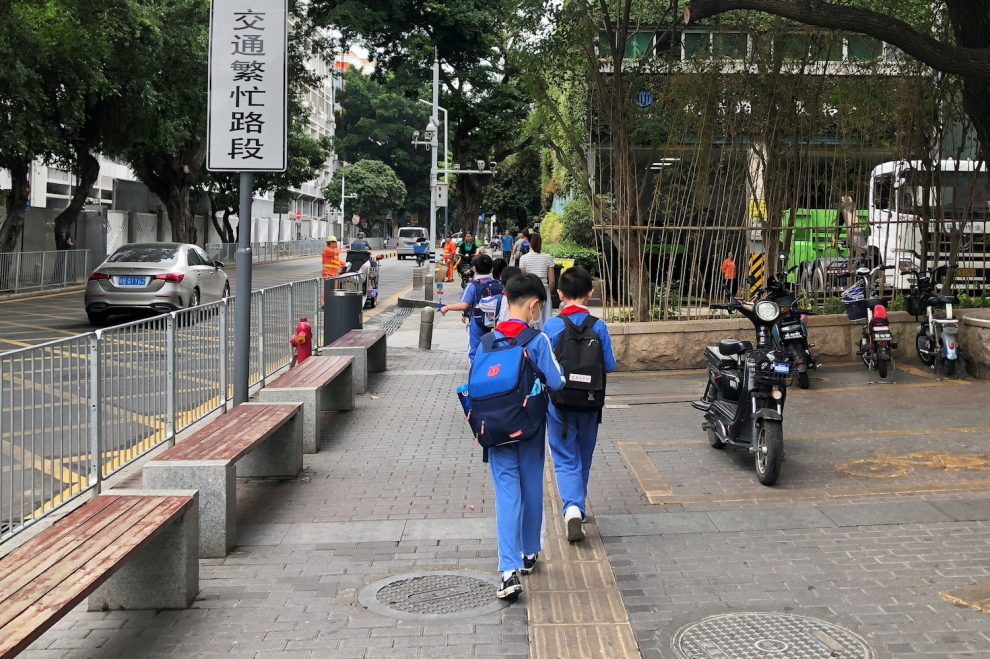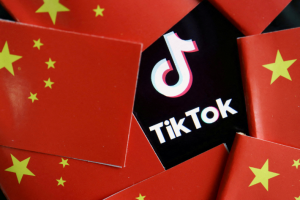Beijing’s concerns over a widening gap between its rich and the middle class has put the country’s tutoring firms in its sights – and that has panicked online education outfits already operating at the edge of profitability
(AF) A slew of Chinese online education firms such as the Gaotu Group, Zuoyebang, NetEase’s Youdao and the TAL Education Group are downsizing – letting go of their employees, freezing the headcount and closing some of their businesses.
The move comes as Beijing tightens its grip on the booming industry to combat what its sees as unfair competition and relieve the financial burdens of young couples in a nation with a rapidly declining birth rate.
New York-listed Gaotu Group has decided to lay off 20% of its employees in shared services such as office administration, human resources and intermediary positions, and to dismiss its early childhood education division that provides online tutoring to children aged between 3 to 8, Chinese tech news portal LatePost reported on Friday.
Also on AF: Twitter accuses India of ‘dangerous overreach’ in war of the words
Gaotu said it has decided to reorganise its business to comply with China’s new Minors Protection Law that will take effect on June 1. The law prohibits kindergartens and private education firms from teaching primary school content such as Chinese, maths and English, to pre-school children.
The government has been trying for years to stop private schools organising their own tests to pick good students ahead of public ones, and after-school education centres teaching material beyond the public school curriculum.
Adding to Beijing’s concerns of the widening gap between the rich and the middle class are fears its dwindling workforce will be unable to support an increasingly elderly population. Living costs in big cities, with education accounting for a big chunk of that, have deterred couples from having children.
CLAMPDOWN CAMPAIGN
A recent clampdown campaign is centered around “double reduction”, which refers to the reduction of homework and the reduction of after-school training for kindergarten through to the 12th grade, or K-12 pupils.
The new rules seek to limit fees charged by companies for tutoring, and advise public schools to provide free after-school day care services on the working days.
Rumours about a regulatory crackdown dubbed “no advertising, no IPO, and no expansion” started circulating in early March, and created a panic in the industry. After that, advertisements for online tutoring services – previously ubiquitous on TV, in residential complex elevators and at bus stops – were all but gone.
A new rumour that emerged on Sunday saying there would be no private tutoring during the summer break wiped 10% off the market values of many education firms, such as Gaotu, New Oriental and TAL Education Group.
STOCK PRICES
An education regulator in Beijing later dismissed the rumour, but the companies’ stock prices remain sluggish as reports about their lay-off plans came out one after another.
Local media reports said that Baidu spin-offs Zuoyebang and TAL Education Group have announced hiring freezes, ByteDance’s online education arm is going through a reorganisation, and VIPKid, which provides online English language learning to children, has downsized and shut down several of its businesses. NetEase’s Youdao is also reported to be laying off its staff.
While these companies enjoyed record sales growths last year as the pandemic pushed pupils online, many of them – especially new players such as Zuoyebang and Yuanfudao – are yet to make a profit.
Gaotu Group’s loss widened to 1.43 billion yuan ($225 million) in the first quarter, and was larger than its loss recorded for all of 2020.
CUT-THROAT COMPETITION
Cut-throat competition has pushed these companies to spend huge budgets on advertising and promotions – the cost of acquiring one student is estimated to be around 2,000 yuan ($314) on average, according to LatePost.
Their practices are similar to what Didi, the Chinese equivalent of Uber, did in the ride-hailing sector – using subsidies to gain market dominance, at which point they can hike prices.
But Beijing is determined to cool this cut-throat market, which has grown exponentially in recent years to around $120 billion.
Online education start-up Yuanfudao, backed by tech behemoth Tencent, has suspended preliminary talks to raise around $1 billion which would have valued the company at $22 billion, Reuters reported earlier this month.
GOLD RUSH
Yuanfudao and Zuoyebang, which together raised over $5 billion of venture capital funds in last year’s EdTech gold rush, were fined a maximum of 2.5 million yuan ($389,420) each by regulators earlier this month over false advertising.
“A new chapter of standardisation and rectification of the online education industry is opening. The industry will see drastic reshuffle. Only firms that can adapt to the new regulatory environment, establish a viable business model and achieve stable and long-term profitability can survive,” analysts from Reality Institute of Advanced Finance said.
Many analysts expect Beijing’s crackdown to push small and medium-sized players to exit the market and major players with good physical presence and rich capital, such as New Oriental and TAL Education Group, to take over their market shares. ByteDance, which merged all its education-related products under the Dali Education brand last October, is also considered a strong player.
Read more:
Chinese officials begin crackdown on real-estate speculation
Chinese banks return to popularity after crackdown on Internet firms
























